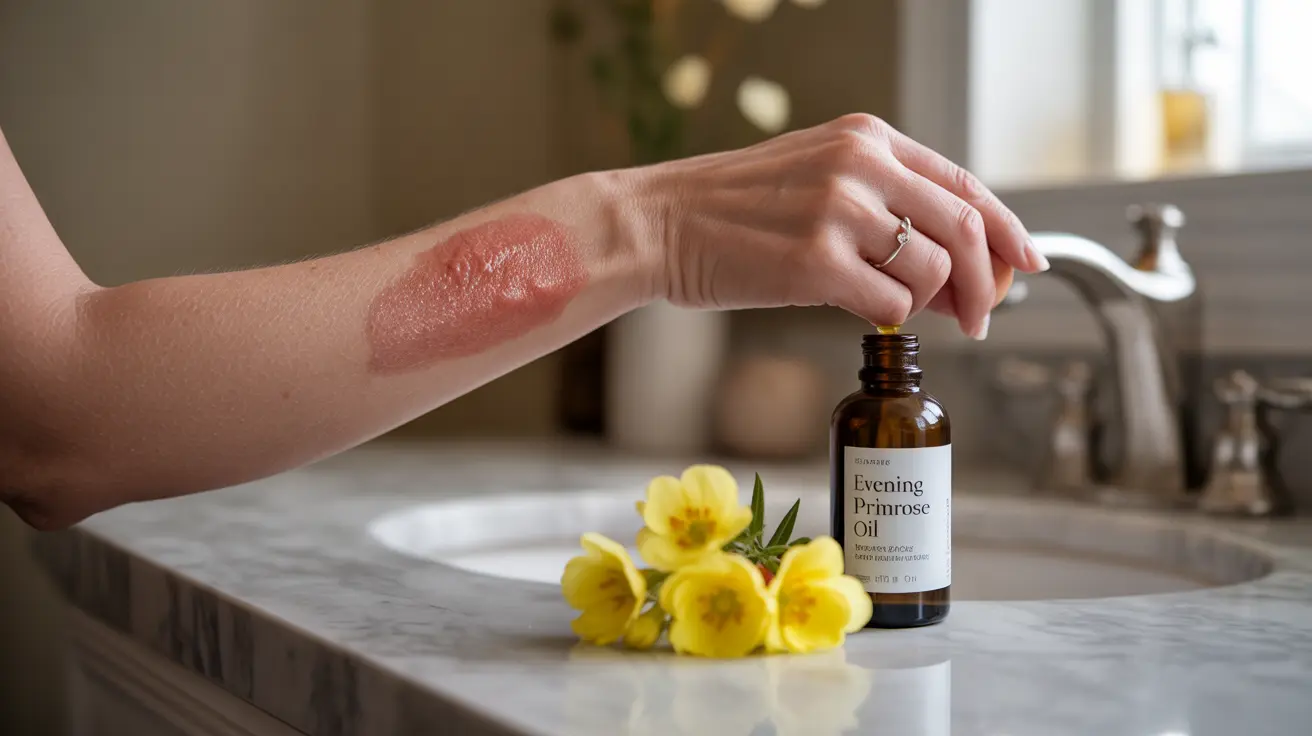Evening primrose oil has gained attention as a potential natural remedy for managing eczema symptoms. This omega-6 fatty acid-rich oil, derived from evening primrose plant seeds, contains gamma-linolenic acid (GLA), which may help reduce inflammation and support skin health. Understanding its benefits, proper usage, and safety considerations is crucial for those considering this alternative treatment option.
While some people report positive results using evening primrose oil for eczema management, it's important to examine the evidence and understand both its potential benefits and limitations before incorporating it into your skincare routine.
Understanding Evening Primrose Oil and Its Components
Evening primrose oil contains several beneficial compounds, with GLA being the most notable for skin health. This essential fatty acid helps maintain the skin barrier and may reduce inflammation associated with eczema. The oil also contains other beneficial compounds like linoleic acid and vitamin E, which contribute to its potential therapeutic effects.
How Evening Primrose Oil May Help with Eczema
The potential benefits of evening primrose oil for eczema stem from its anti-inflammatory properties and ability to support skin barrier function. When used consistently, it may help:
- Reduce skin inflammation and redness
- Decrease itching and irritation
- Improve skin moisture retention
- Support skin barrier repair
- Minimize eczema flare-ups
Application Methods and Dosage Guidelines
Evening primrose oil can be used both topically and orally for eczema management. Each method has its own considerations:
Topical Application
When applying evening primrose oil directly to the skin:
- Perform a patch test before full application
- Use pure, high-quality oil
- Apply to clean, slightly damp skin
- Use gentle, circular motions to massage into affected areas
- Consider mixing with a carrier oil for sensitive skin
Oral Supplementation
For oral consumption:
- Typical dosages range from 2-8g daily
- Start with a lower dose and increase gradually
- Take with food to improve absorption
- Choose supplements from reputable manufacturers
- Consider breaking daily dosage into multiple servings
Safety Considerations and Potential Side Effects
While generally considered safe for most people, evening primrose oil may cause:
- Digestive issues when taken orally
- Skin reactions in sensitive individuals
- Headaches
- Changes in blood pressure
- Increased bleeding risk
It's essential to consult with a healthcare provider before starting evening primrose oil, especially if you're pregnant, nursing, or taking medications.
Alternative Natural Remedies for Eczema
Several other natural options may help manage eczema symptoms:
- Coconut oil
- Aloe vera
- Colloidal oatmeal
- Calendula cream
- Tea tree oil
- Vitamin D supplements
Frequently Asked Questions
- What are the benefits and effectiveness of evening primrose oil for treating eczema?
Evening primrose oil may help reduce inflammation, itching, and dryness associated with eczema through its GLA content. While some studies show positive results, effectiveness can vary among individuals, and more research is needed to confirm its benefits conclusively.
- How safe is evening primrose oil for eczema, and what side effects should I be aware of?
Evening primrose oil is generally safe when used as directed, but potential side effects include digestive issues, headaches, and skin reactions. People with bleeding disorders or those taking blood-thinning medications should exercise caution.
- Can evening primrose oil interact with medications or health conditions when used for eczema?
Yes, evening primrose oil can interact with blood-thinning medications, blood pressure medications, and anti-inflammatory drugs. It may also affect certain health conditions, making consultation with a healthcare provider essential before use.
- What is the best way to use evening primrose oil for eczema—oral capsules or topical application?
Both methods can be effective, and the choice depends on individual preferences and needs. Topical application may provide more immediate relief for localized symptoms, while oral supplementation might offer systemic benefits. Some people use both methods concurrently for enhanced results.
- Are there better natural alternatives to evening primrose oil for managing eczema symptoms?
While evening primrose oil can be helpful, other natural alternatives like coconut oil, colloidal oatmeal, and aloe vera may be equally or more effective for some individuals. The best option varies person to person, and combining multiple natural remedies might provide optimal results.




